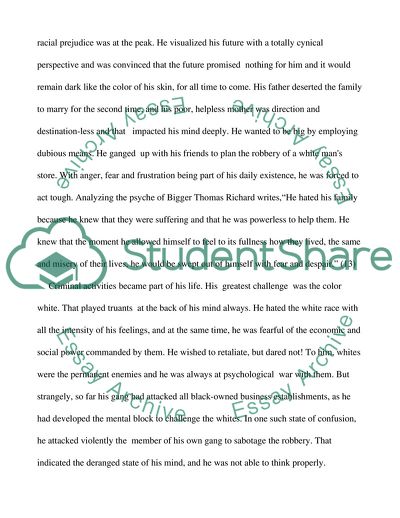Cite this document
(The Psyche of a Former Slave: Comparing Richard Wrights's Native Son Essay, n.d.)
The Psyche of a Former Slave: Comparing Richard Wrights's Native Son Essay. https://studentshare.org/literature/1736122-the-psyche-of-a-former-slave-comparing-richard-wrights-native-son-with-frederick-douglassharriet-jacobs-autobiography
The Psyche of a Former Slave: Comparing Richard Wrights's Native Son Essay. https://studentshare.org/literature/1736122-the-psyche-of-a-former-slave-comparing-richard-wrights-native-son-with-frederick-douglassharriet-jacobs-autobiography
(The Psyche of a Former Slave: Comparing Richard Wrights'S Native Son Essay)
The Psyche of a Former Slave: Comparing Richard Wrights'S Native Son Essay. https://studentshare.org/literature/1736122-the-psyche-of-a-former-slave-comparing-richard-wrights-native-son-with-frederick-douglassharriet-jacobs-autobiography.
The Psyche of a Former Slave: Comparing Richard Wrights'S Native Son Essay. https://studentshare.org/literature/1736122-the-psyche-of-a-former-slave-comparing-richard-wrights-native-son-with-frederick-douglassharriet-jacobs-autobiography.
“The Psyche of a Former Slave: Comparing Richard Wrights'S Native Son Essay”. https://studentshare.org/literature/1736122-the-psyche-of-a-former-slave-comparing-richard-wrights-native-son-with-frederick-douglassharriet-jacobs-autobiography.


